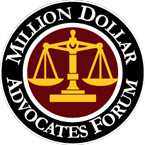NHTSA asks Tesla for Autopilot data after fatal crash
On behalf of Steven Crell of Steve Crell Law posted in Personal Injury on Thursday, July 14, 2016.
Companies like Google and Volvo say that self-driving cars will soon be a common sight on the roads of Indiana and other U.S. states, but a growing number of experts believe that autonomous vehicle technology requires more testing before being it can be safely introduced to the marketplace. While a fully autonomous car has yet to go on sale in the United States, technology such as Tesla’s Autopilot system is currently available.
Tesla boasts that their Autopilot technology can automatically adjust vehicle speeds and change lanes at the tap of a turn signal, but a fatal accident in Florida has raised questions about the reliability and safety of the technology. A Tesla Model S driver was killed when his luxury sedan struck a tractor-trailer in May while the Autopilot feature was engaged. The fact that autonomous technology was involved prompted the National Highway Traffic Safety Administration to look into the accident, and the safety agency sent a letter to Palo Alto-based Tesla July 8 demanding more information about the Autopilot system.
NHTSA want to know about the testing Tesla put the technology through before installing it in vehicles like the Model S and Model X, and they are particularly interested in how the system deals with false alarms or poor visibility. Tesla has pointed out that the deadly Florida accident marked the only time in over 130 million miles of Autopilot assisted driving that a vehicle occupant was killed in a crash.
When individuals suffer injury, loss or damage in automobile accidents caused by negligent behavior, personal injury attorneys may file lawsuits on their behalf against the reckless drivers involved or their insurers. However, litigation of this type may also be brought against auto makers when accidents occur as a result of mechanical or electronic defects that went unnoticed due to inadequate testing or lax manufacturing practices.

